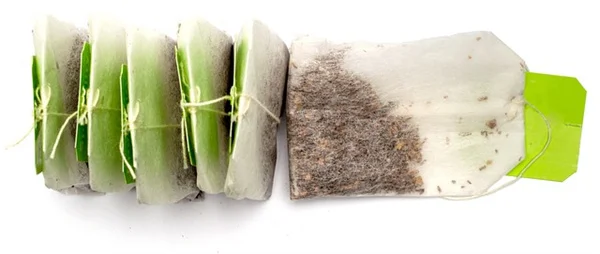Are you curious about how mushrooms for brain health can boost your cognitive function? The answer is simple: mushrooms are not just delicious; they're also packed with nutrients that can actually enhance your brain power! I used to underestimate the impact of these fungi until I started incorporating them into my meals. Now, I can confidently say that adding mushrooms like lion's mane to my diet has helped me improve my focus and memory—no more misplaced keys for me! 🗝️In this article, we're diving into why you should consider mushrooms as a go-to brain food. From their unique compounds that promote nerve growth to their ability to reduce stress, you'll discover how easy it is to make mushrooms a regular part of your diet. So if you're looking for practical ways to enhance your mental clarity and overall brain health, stick around—I promise you won't want to miss this!
E.g. :Unlocking Your Mind: The Best Diet for Brain Health You Need to Try Today
- 1、Why Your Brain Loves Mushrooms 🍄
- 2、Meet the Mushroom All-Stars 🏆
- 3、Simple Ways to Eat More Brain Mushrooms 🍽️
- 4、What Science Says About Mushrooms and Your Brain 🔬
- 5、Important Safety Tips Before You Begin ⚠️
- 6、Making Mushrooms Part of Your Brain Health Routine 🧠
- 7、Beyond the Hype: Realistic Expectations 🎯
- 8、FAQs
Why Your Brain Loves Mushrooms 🍄
The Brain-Boosting Superpowers of Mushrooms
Did you know the mushrooms in your stir-fry might be making you smarter? Mushrooms for brain health aren't just hype - they're packed with nutrients that act like fertilizer for your gray matter. I was skeptical too until I tried adding lion's mane mushrooms to my morning omelet and noticed I stopped forgetting where I left my keys!
These funky fungi contain compounds that stimulate nerve growth, protect brain cells from damage, and even help balance your mood. Think of them as nature's nootropic - but without the jitters or weird side effects. The best part? You don't need to become some mushroom foraging expert to benefit. Even the basic button mushrooms at your grocery store contain brain-loving nutrients.
How Mushrooms Outperform Other Brain Foods
Let's play a quick game: what do walnuts, blueberries and mushrooms have in common? They're all brain foods, but mushrooms bring something special to the table. While other foods might contain one or two beneficial compounds, mushrooms contain a whole cocktail of brain-boosting ingredients.
| Nutrient | Brain Benefit | Best Mushroom Source |
|---|---|---|
| Ergothioneine | Protects against oxidative stress | Shiitake, oyster |
| Beta-glucans | Reduces inflammation | Reishi, maitake |
| Hericenones | Stimulates nerve growth | Lion's mane |
Now here's a question that might surprise you: Why don't more people know about mushrooms for brain health? Honestly, I think it's because mushrooms have an image problem. They're not as sexy as acai berries or as trendy as turmeric. But when you look at the science, these humble fungi deserve way more credit.
Meet the Mushroom All-Stars 🏆
 Photos provided by pixabay
Photos provided by pixabay
Lion's Mane - The Brain's Personal Trainer
If mushrooms had a yearbook, lion's mane would win "Most Likely to Make You Smarter." This shaggy white mushroom looks like it belongs in a Dr. Seuss book, but its effects on the brain are seriously impressive.
Studies show lion's mane contains compounds that stimulate production of nerve growth factor (NGF) - basically the protein that helps your brain cells grow and connect. One trial found older adults who took lion's mane supplements showed measurable cognitive improvements. I like to think of it as weightlifting for your neurons!
Reishi - The Zen Master Mushroom
Ever feel like your brain is an overworked computer with too many tabs open? That's where reishi mushrooms come in. Known as the "mushroom of immortality" in traditional Chinese medicine, reishi is like a spa day for your stressed-out brain.
What makes reishi special is its adaptogenic properties - meaning it helps your body handle stress. Less stress equals better focus, memory, and overall brain function. Pro tip: Reishi tea before bed might help you sleep better too, and we all know how important sleep is for brain health!
Simple Ways to Eat More Brain Mushrooms 🍽️
Mushroom Hacks for Busy People
"But I don't have time to cook fancy mushroom dishes!" I hear you. Here's my lazy person's guide to getting more mushrooms for brain health into your diet:
- Keep a bag of dried mushrooms in your pantry (they last forever)
- Add mushroom powder to your coffee or smoothie (yes, really!)
- Throw some sliced mushrooms into your frozen pizza before baking
- Mix mushroom extract into your salad dressing
See? No Michelin-star cooking skills required. The key is finding ways that work with your lifestyle. Even small amounts regularly can make a difference.
 Photos provided by pixabay
Photos provided by pixabay
Lion's Mane - The Brain's Personal Trainer
Let's be real - some mushrooms taste... interesting. But these two recipes will make even mushroom skeptics happy:
Creamy Mushroom "Alfredo" Pasta:
Sauté garlic and mixed mushrooms in olive oil, blend with cashews and nutritional yeast for a dairy-free sauce that's packed with brain nutrients. Kids won't even know they're eating something healthy!
Mushroom Coffee (Yes, Really):
Mix lion's mane powder into your morning brew. It adds an earthy depth to the flavor while giving your brain a boost. Perfect for replacing that second (or third) cup of coffee.
What Science Says About Mushrooms and Your Brain 🔬
The Research You Should Know About
Now, I'm not one to blindly follow health trends. That's why I dug into the actual studies on mushrooms for brain health. Here's what impressed me:
A 2019 study published in the Journal of Alzheimer's Disease found that older adults who ate more than two servings of mushrooms per week had significantly reduced risk of mild cognitive impairment. That's just two mushroom meals a week for potential brain protection!
Another question people often ask: Do you need to eat mushrooms every day to see benefits? The research suggests even occasional consumption helps, but regular intake provides more consistent benefits. Think of it like exercise - going for one run won't make you fit, but regular jogs will.
Mushrooms vs. Other Brain Supplements
Walk into any health store and you'll see shelves of expensive brain supplements. How do mushrooms stack up?
Unlike isolated compounds in many supplements, mushrooms offer a complex matrix of beneficial substances that work together. Plus, they're whole foods your body knows how to process. Many supplements promise the world but deliver little, while mushrooms have centuries of traditional use plus modern science backing them.
Important Safety Tips Before You Begin ⚠️
 Photos provided by pixabay
Photos provided by pixabay
Lion's Mane - The Brain's Personal Trainer
Before you run off to the nearest forest to forage mushrooms (please don't), there are some important safety considerations:
- Always buy from reputable sources (some wild mushrooms are deadly)
- Start with small amounts to check for sensitivities
- If you're on medications, check with your doctor (some mushrooms interact with blood thinners)
- Quality matters - cheap supplements might not contain what they claim
I learned this the hard way when I bought some suspiciously cheap "lion's mane" powder online that turned out to be mostly rice flour. Now I stick to trusted brands with third-party testing.
When You Might Want to Avoid Mushrooms
While mushrooms are generally safe, there are a few cases where caution is wise:
- If you have mushroom allergies (obviously)
- During pregnancy (limited research exists)
- If you have autoimmune conditions (some mushrooms stimulate immune function)
- When taking MAOI antidepressants
When in doubt, consult a knowledgeable healthcare provider. Your brain health journey should be safe as well as effective!
Making Mushrooms Part of Your Brain Health Routine 🧠
Building Your Personal Mushroom Protocol
After experimenting with different approaches, here's what works for me and many of my clients:
Morning: Lion's mane coffee or tea for focus
Lunch: Mushrooms in my salad or stir-fry
Evening: Reishi tea to wind down
Supplements: High-quality mushroom extract capsules when traveling
The key is consistency without obsession. Some weeks I'm all about mushrooms, other times I just add them when convenient. Any amount is better than none!
Tracking Your Brain Benefits
How will you know if the mushrooms are working? Here are some signs to watch for:
- Improved recall of names and details
- Feeling less "foggy" in the afternoons
- Better ability to focus during meetings
- More vivid dreams (a fun side effect some people report)
- Feeling calmer under stress
I recommend keeping a simple journal for a few weeks. Our memories are funny - we might feel different but not realize how much until we look back at notes.
Beyond the Hype: Realistic Expectations 🎯
What Mushrooms Can and Can't Do
Let's keep it real - mushrooms aren't magic (though some are magical in other ways 😉). They won't turn you into Einstein overnight or cure serious neurological conditions.
But when combined with other healthy habits - good sleep, exercise, stress management - they can be a powerful part of your brain health toolkit. Think of them as one piece of the puzzle, not the entire picture.
The Long Game of Brain Health
The beautiful thing about using mushrooms for brain health is that their benefits compound over time. Unlike stimulants that give you a quick boost followed by a crash, mushrooms support sustainable cognitive function.
I've come to see them as an investment in my future self. The small choices I make today - like adding mushrooms to my meals - could mean the difference between staying sharp as I age or struggling with memory issues. And that's worth its weight in gold (or should I say, in fungi?).
Incorporating mushrooms for brain health into your diet can truly be a game changer. As we've explored, these incredible fungi are not just culinary delights; they're also packed with nutrients that support cognitive function, protect against oxidative stress, and promote nerve growth. I encourage you to consider adding varieties like lion's mane and reishi to your meals. You might notice improvements in your focus, memory, and even your overall mood! Remember, the key is consistency; even small changes can lead to significant benefits over time. If you have any thoughts or experiences with mushrooms, I'd love to hear them! Let's share our mushroom journeys in the comments below. 🍄✨
E.g. :The Relationship between Mushroom Intake and Cognitive ...
FAQs
What are the benefits of mushrooms for brain health?
Mushrooms are packed with nutrients that can boost brain health in several ways. They contain compounds that stimulate nerve growth, protect brain cells from damage, and help balance your mood. For instance, lion's mane mushrooms have shown potential in improving cognitive function and memory. Including mushrooms in your diet can be a simple and effective way to support your brain health!

